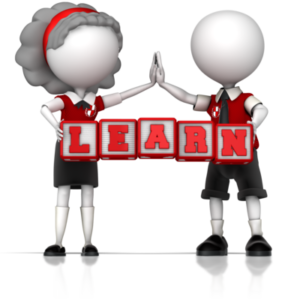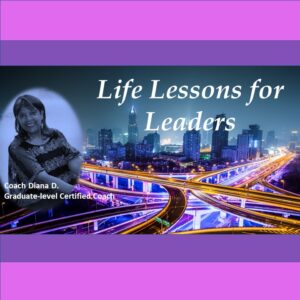Knowing is Not Necessarily Learning
- Posted by - Coach Diana Dee
- On -
 Whenever I tell people I’m a learning and development coach, I am no longer surprised by the puzzled look I get in response. It’s almost as though they’re wondering why anyone would choose to do that. And I get it! Many people believe today that all we need to do is pick up a book and read it, or get online and watch a video to learn what we want; right? Not necessarily.
Whenever I tell people I’m a learning and development coach, I am no longer surprised by the puzzled look I get in response. It’s almost as though they’re wondering why anyone would choose to do that. And I get it! Many people believe today that all we need to do is pick up a book and read it, or get online and watch a video to learn what we want; right? Not necessarily.
I admit, by reading a book you can get some good information, and I confess to being an avid reading (which still surprises me since it took me so long to learn how). Certainly, watching a video is a great contribution to acquiring skills. The success of YouTube confirms that, and I’m not saying both are not very helpful. The problem is that while reading a book and watching a video may give you awesome information, it will not necessarily result in real learning. So, what does?
And how do you know when learning has taken place?
You know when real learning has occurred because learning always results in some type of change. If you read a book or watch a video and nothing changes, you really can’t say that you’ve learned anything. The only proof you have that learning has taken place is when you do something that you could not do prior, or you create something that did not previously exist. In other words, you only know you have learned PowerPoint when you create a presentation. You only know you have learned how to create a business plan when you create one.
In my profession, I’ve found that people don’t really enjoy real learning, and I can give you three reasons why that is.
First, learning is often – not always, but often humbling. You see, learning begins with the premise that I don’t know which can be very humbling, e.g., starting a new job, or even worse, a totally new industry. Think about how you feel. You know little or nothing about the dynamics and politics of the workplace. You certainly do not understand the culture. The jargon is often new, and you find yourself walking humbly and hoping nobody really notices that you know nothing about what’s going on. That, my friend, is humbling.
A second reason we often don’t enjoy learning is because learning is also labor-intensive. Using the same example of starting a new job, you must closely observe what’s going on, reflect on what you see, attempt to draw some initial conclusions, which are usually wrong in the beginning. It is a tedious process!
You might be thinking that others will help you; right? And that may be true. And while there is certainly a spirit of collaboration existing today, there is still a competitive element very much alive, which means you must take everything with a grain of salt, at least until you know it to be fact. It may not even be a competitive element, but a lack of understanding or a wrong perception on the part of your contributor. The point is, you don’t know until you know.
The third reason for this dislike of true learning is the fact that it always represents change, and as humans, change can be difficult. That which is unknown in change process often causes stress, and who needs more of that? Certainly, change takes us out of our comfort zone, which is admirable but also challenging.

Coming soon!
At this point, you may be thinking, why bother? I still get it! Let me now tell you why real learning matters so much.
It is natural for humans to have dreams, desires, and visions. I think it’s safe to say that most of us have had at least one of them at some point. When we have a dream or a vision, its often very high and seemingly out of reach. Almost simultaneously with our vision or dream, our attention is involuntarily drawn back to our current reality which is often far below the vision. Now we see this huge gap between what we desire and where we are.
Anytime we have a gap between what we desire and where we are, it creates internal tension, and there are only two options for managing that internal tension. One option is to take steps towards our vision. The other option is to lower our vision and bring it closer to our current reality.
Without having the stats, think about the ideas for books that are never written. How about the goals that are never achieved, the content that is never produced, or the products that are never created?
Often, people never move beyond their current reality. But why?
The reason that so many people never get beyond their current reality is because true learning is the key to closing the gap between your dream and your current reality.
I hope you caught that.